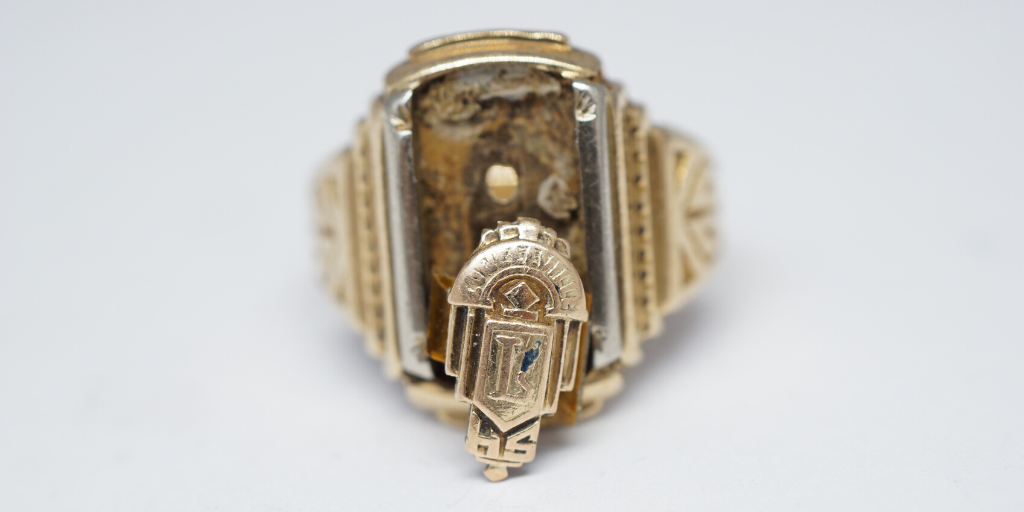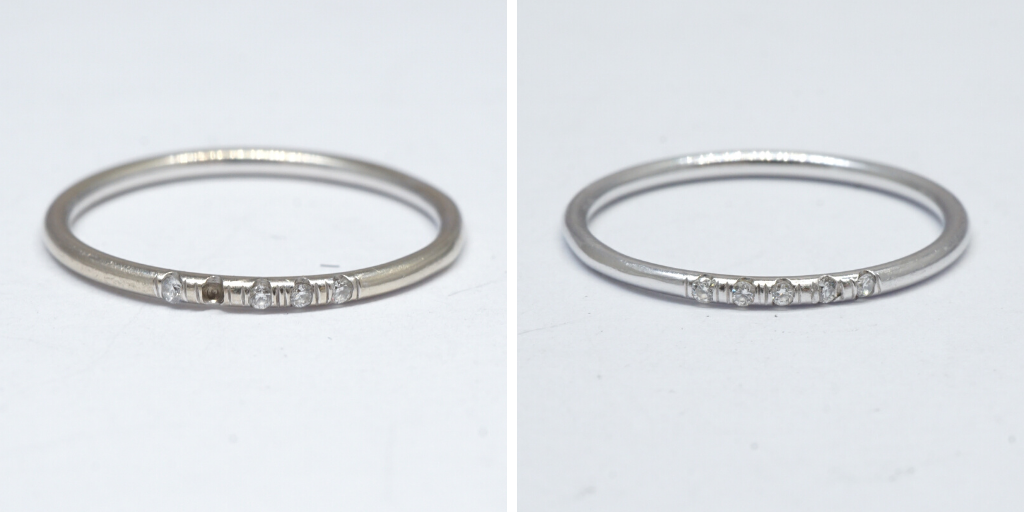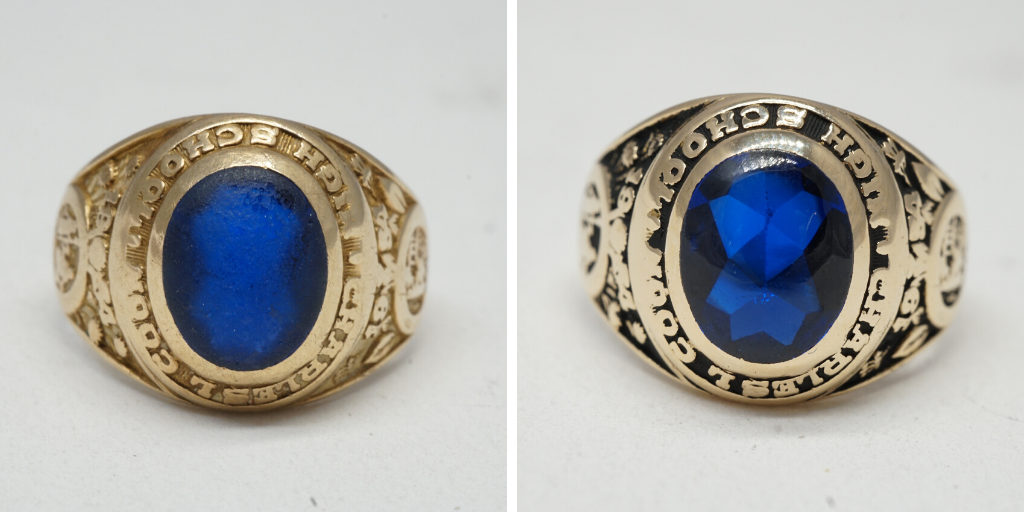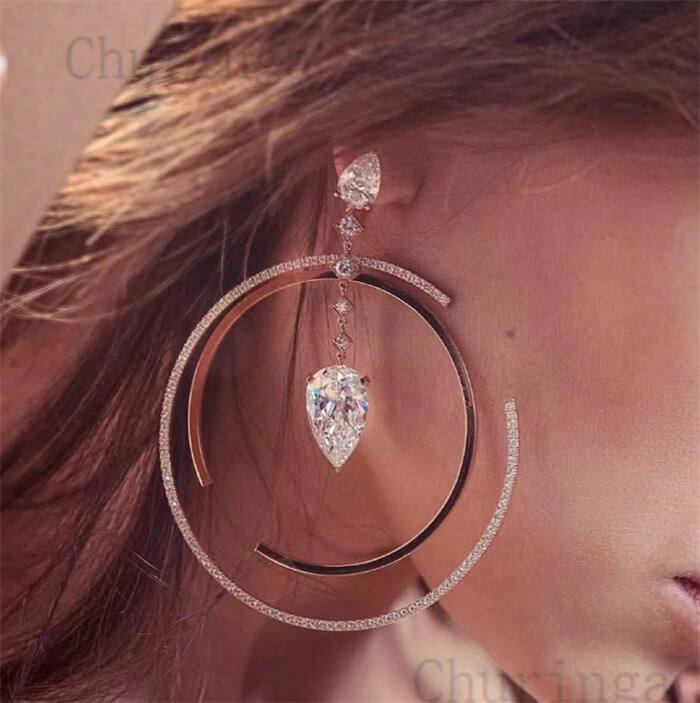June 24, 2020

Rings are the most symbolic and prominent type of jewelry, and with good reason! They’re highly visible thanks to being on your hand all day and they’re equally prone to banging and rubbing against every item you touch. It’s no wonder why rings suffer the most damage when it comes to jewelry repair, so read on to learn more about ring restoration.
What Is Ring Restoration?
Ring restoration comes in many forms depending on the extent of the damage to the ring. For most rings, it’s a simple clean and polish to remove scratches and dirt from the item. For other rings, it may entail stone replacement, stone polishing, plating, enameling, and even ring shank restoration. We’ve compiled a quick list of common ring restoration repairs below.
- Clean and Polish: Some rings can get quite scuffed and dirty over time, and even tarnish with exposure to your skin and other chemicals. Sterling silver, brass, and other miscellaneous non-precious alloys are especially vulnerable to tarnishing. The jeweler quickly buffs off a very thin surface layer on your item to remove the scratches and oxidation. Then the jeweler cleans it with industry-grade machinery that knocks out all the dirt from the nooks and crannies you can’t reach on your own.

This silver onyx ring was thoroughly cleaned and polished. It makes a huge difference!
- Stone Replacement: Stones can fall out of rings over time, and they’ll need replacement. After all, no one likes looking at an empty setting! The jeweler will match the stone replacement back to any other stones in your item to ensure matching size and quality. Then the stone is reset and tightened for a seamless look.

A small diamond ring before and after stone replacement
- Stone Polishing: Colored stones can wear down over years of wear and need a quick buff to restore them back to their original glittery look. A lapidary can skillfully remove scratches and soften chips with some polishing.

A class ring stone before and after polishing
- Plating: White gold rings need rhodium plating to hide the metal’s original yellow-gray look, and gold-plated rings wear down to the base metal over time! The jeweler polishes the ring to remove the original plating and create a smooth texture. Then the item is submerged in the plating tank and electricity runs through the tank to fuse gold or rhodium to the surface of the item.

A copper ring before and after gold plating with a professional jeweler.
- Enameling: Enamel is jewelry paint, and it’s commonly found in fancy ring designs or class rings! The jeweler simply touches up the item by polishing it and removing all traces of original enamel. Then new enamel is painted on and the item is left to cure in an enameling kiln to harden the paint to the surface of the ring.

This ring is missing portions of its enamel after years of wear.
- Prong Repair: The itty bitty pieces of metal that hold your stones in are prone to wearing down or breaking over time. To repair this, the jeweler adds a bit of matching wire in the same metal as your item to the base of the setting, or the top of the worn-down prong. Then the prong is polished and the jeweler ensures it securely holds down the stone.

This ring needed prongs to be rebuilt as they were completely missing.
- Ring Shank Replacement: For rings that are extremely thin, cracked, or broken at the back of the band, they’ll need a ring shank replacement. The jeweler cuts off the original band and replaces it with a thicker and stronger portion of metal. Depending on the area of work, this can be a quarter, half, or full-shank replacement.

An antique ring, before and after shank replacement.
Now you’re all set when it comes to ring restoration! Comment below if you have a ring you’d like to fix up and we can help you get started.
SHARE
Ten articles before and after
How to Repair, Replace, or Create a Family Ring
4 Types of Jewelry Business Vendors You Can Leverage to Maximize Profit
A Guide to Stainless Steel Jewelry Repair Services
What You Need to Know About Silver Polishing
Metal Testing Service: How to Identify Your Jewelry
What You Need in an Engagement Ring Restoration Service
Inhouse vs Outsourcing for Repairs: What's Best for Your Jewelry Business
A Quick Guide on How to Make Pendants

